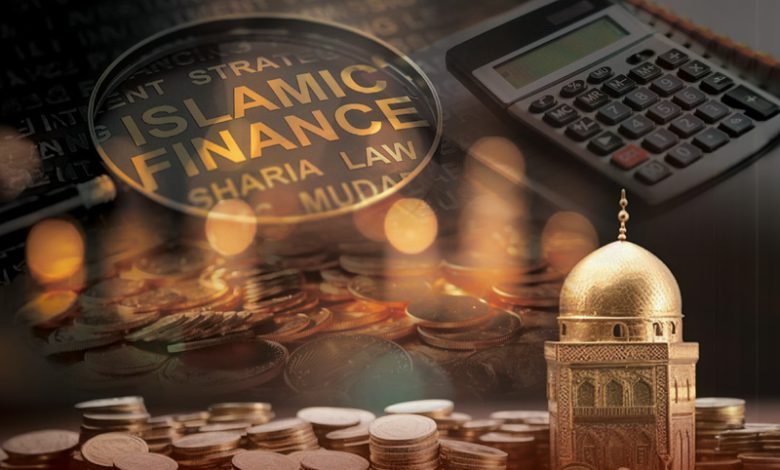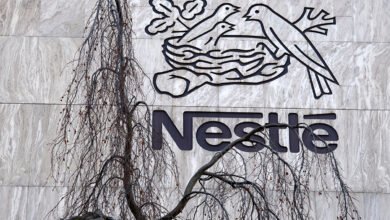
Islamic Finance Boom: Market Value Racing to $7.5tr Mark
Standard Chartered sees a bright future for Islamic finance. The industry’s assets will reach $7.5 trillion by 2028, up from $5.5 trillion in 2024. The sector showed strong performance with a 12% growth from 2023 and grew 43% since 2020. These numbers paint a promising picture, with a projected 36% growth between 2024 and 2028.
Islamic banking serves as the life-blood of this financial ecosystem and makes up more than 70% of total Islamic finance assets. The banking segment will grow from $4 trillion in 2024 to $5.2 trillion by 2028. On top of that, the Sukuk market will expand by a lot, reaching $1.5 trillion from its current $971 billion. The industry reaches far and wide through 1,980 Islamic financial institutions in more than 90 markets worldwide. However, five markets hold 80% of all assets: Iran, Saudi Arabia, Malaysia, the UAE, and Kuwait. Of course, the Gulf Cooperation Council region plays a crucial role with 53.1% of global Islamic finance assets at the end of 2024.
Islamic finance assets grow 36% to reach $7.5 trillion by 2028

Image Source: Asian Development Bank
“Islamic finance is entering a new era that is defined by scale, sustainability, and strategic integration. A 36% projected increase in assets reflects the sector’s strong fundamentals and global appetite for ethical and inclusive finance. At Standard Chartered, we are proud to support this evolution through tailored, Shariah-compliant solutions in over 25 markets.” — Khurram Hilal, CEO, Group Islamic Banking, Standard Chartered
Islamic finance continues to show remarkable growth with regional powerhouses leading the way. Saudi Arabia emerges as the key driver that contributes nearly two-thirds of Islamic banking asset expansion. The kingdom’s banking system assets consisted of about three-quarters Islamic banking assets by the end of 2024. This success largely comes from the government’s Vision 2030 program opportunities and Saudi’s deep integration of Islamic banking into its financial system.
The Gulf Cooperation Council (GCC) region factored in 81% of Islamic banking growth in 2024, up from 54% in 2023. Bahrain has shown substantial growth, especially after Ahli United Bank switched from conventional to Islamic banking. The United Arab Emirates adds to this upward trend with strong performance in its non-oil economy.
The Sukuk market now draws attention from a broader range of buyers, including non-Muslim investors. This wider appeal helps balance supply and demand. Sukuk will likely become a bigger part of Islamic finance assets in the future.
The global Takaful (Islamic insurance) market shows reliable growth and should reach $75.26 billion by 2033 from $36.57 billion in 2024. Malaysia’s General Takaful sector grew by 20.1% year-on-year in 2023’s first half.
Experts predict strong performance through 2025, with growth rates of 9-10%. The Asia-Pacific region shows great promise. Islamic banking should grow at high single digits over the next few years. This growth comes from Malaysia’s robust demand and significant market potential in Indonesia, Bangladesh, and Pakistan.
Standard Chartered’s complete report shows Islamic finance entering a new era. This era focuses on scale, sustainability, and strategic integration that reflects the sector’s strong fundamentals and global appetite for ethical and inclusive finance.
Standard Chartered identifies key drivers of Islamic finance expansion
Image Source: FasterCapital
Standard Chartered’s detailed analysis shows key drivers that push the Islamic finance industry toward its projected $7.5 trillion milestone by 2028.
Demographics lead these factors. The Muslim population grows twice as fast as non-Muslims through 2025. Projections show an increase of 600 million people by 2030 – a one-third rise. This growth creates expanding market potential in regions with high Muslim populations.
Islamic finance’s ethical foundations serve as a powerful catalyst for growth. A recent survey found 90% of Islamic bank customers want their bank’s products to line up with UN Sustainable Development Goals. The study also revealed that 87% would pay more for such products, with a median price premium of 4.4%.
Government backing through favorable policies and regulations plays a crucial role. Saudi Arabia, Malaysia, and the UAE have clear legal structures that support Islamic banking, investment, and insurance products. Indonesia’s sharia banking sector benefits from regulations that could strengthen industry consolidation and boost competitiveness.
Digital changes reshape how customers access and view Islamic banking services. Customers spend less time in branches and connect more through digital platforms. This gives Islamic banks a chance to skip traditional development paths. Nearly 60% of customers value online services because they can bank anywhere at any time.
The industry keeps developing new products, especially in green and sustainable finance. Green Sukuk for eco-friendly projects and ESG-aligned products draw socially conscious investors beyond traditional Islamic markets. Islamic finance assets grew 14% in 2019. This growth came in part from increased sukuk issuance and more green and socially responsible investment sukuk.
Report highlights challenges and opportunities for global adoption
Image Source: The Business Research Company
Standard Chartered’s report reveals several challenges that hold back the wider adoption of Islamic finance despite its expected growth. The biggest problem remains regulatory inconsistency. Islamic finance operates in a variety of regulatory environments, which creates complexities for institutions working across multiple jurisdictions. Without a unified framework, what qualifies as Shariah-compliant varies widely and this confuses investors while limiting cross-border growth.
Managing liquidity poses another major challenge. Islamic banks don’t deal very well with liquidity management because traditional tools like interbank lending involve interest, which Shariah principles prohibit. Many central banks still need adequate frameworks to support Islamic finance liquidity needs, including Shariah-compliant lender-of-last-resort facilities.
The lack of Shariah-compliant high-quality liquid assets (HQLA) makes it difficult for Islamic banks to meet Basel III liquidity coverage ratio requirements. National authorities must grant highly rated tradable Sukuk HQLA status to deepen local Sukuk markets.
The report emphasizes substantial opportunities for global adoption. Islamic finance shows great promise in promoting financial inclusion, with only 24% of adults in Muslim populations having bank accounts compared to 44% in non-Muslim populations. Islamic finance principles also fit well with ESG (Environmental, Social, and Governance) investing, which attracts more ethical investors.
The report suggests that encouraging breakthroughs, improving market connections, and focusing on sustainability will realize the full potential of Islamic finance. This industry’s growth now reaches beyond traditional markets. Countries like the UK, South Africa, and Australia increasingly adopt Islamic finance principles to attract investments from Muslim-majority countries.
Standard Chartered believes that addressing these challenges through international cooperation and standardization efforts will help Islamic finance achieve its full potential in the global financial system.
Looking Forward: The Future of Islamic Finance
Islamic finance approaches the $7.5 trillion milestone at a crucial turning point. This financial system has showed remarkable resilience with 43% growth since 2020 despite global economic challenges. Banking activities are without doubt the foundation of the industry, while Sukuk and Takaful segments show promising growth paths.
The sector’s geographic concentration brings both advantages and limitations. Much of the assets cluster within Iran, Saudi Arabia, Malaysia, UAE, and Kuwait, which provides stability but also reveals untapped potential in other regions with large Muslim populations. Saudi Arabia drives about two-thirds of Islamic banking growth, thanks largely to Vision 2030 initiatives.
Demographics point toward sustained growth. The Muslim population will grow by 600 million people through 2030. This population boom and rising ethical awareness among consumers create natural market expansion. Standard Chartered’s research reveals compelling evidence – 90% of Islamic bank customers want to arrange their investments with Sustainable Development Goals, and most will pay premium prices for these services.
Key markets have created frameworks that encourage industry development. Digital transformation changes how services reach customers, helping Islamic financial institutions connect with underserved populations. These trailblazing solutions help overcome accessibility barriers that once limited market reach.
Notwithstanding that, some challenges remain. Different regulations across jurisdictions create operational hurdles for cross-border activities. Managing liquidity remains difficult because of limited Shariah-compliant instruments and inadequate central bank frameworks. These issues need coordinated solutions through international standardization efforts.
The future depends on three vital factors: welcoming state-of-the-art changes, better market connections, and focus on sustainability. Financial inclusion offers a huge chance, especially since only 24% of adults in Muslim populations have bank accounts. The natural fit between Islamic finance principles and ESG investing attracts ethical investors beyond core markets.
Islamic finance now enters a new era of scale and strategic integration. The industry’s expansion beyond traditional markets into the UK, South Africa, and Australia shows its universal appeal. Standard Chartered’s detailed analysis suggests that solving current challenges while seizing new opportunities will determine Islamic finance’s ultimate role in the global financial system.






